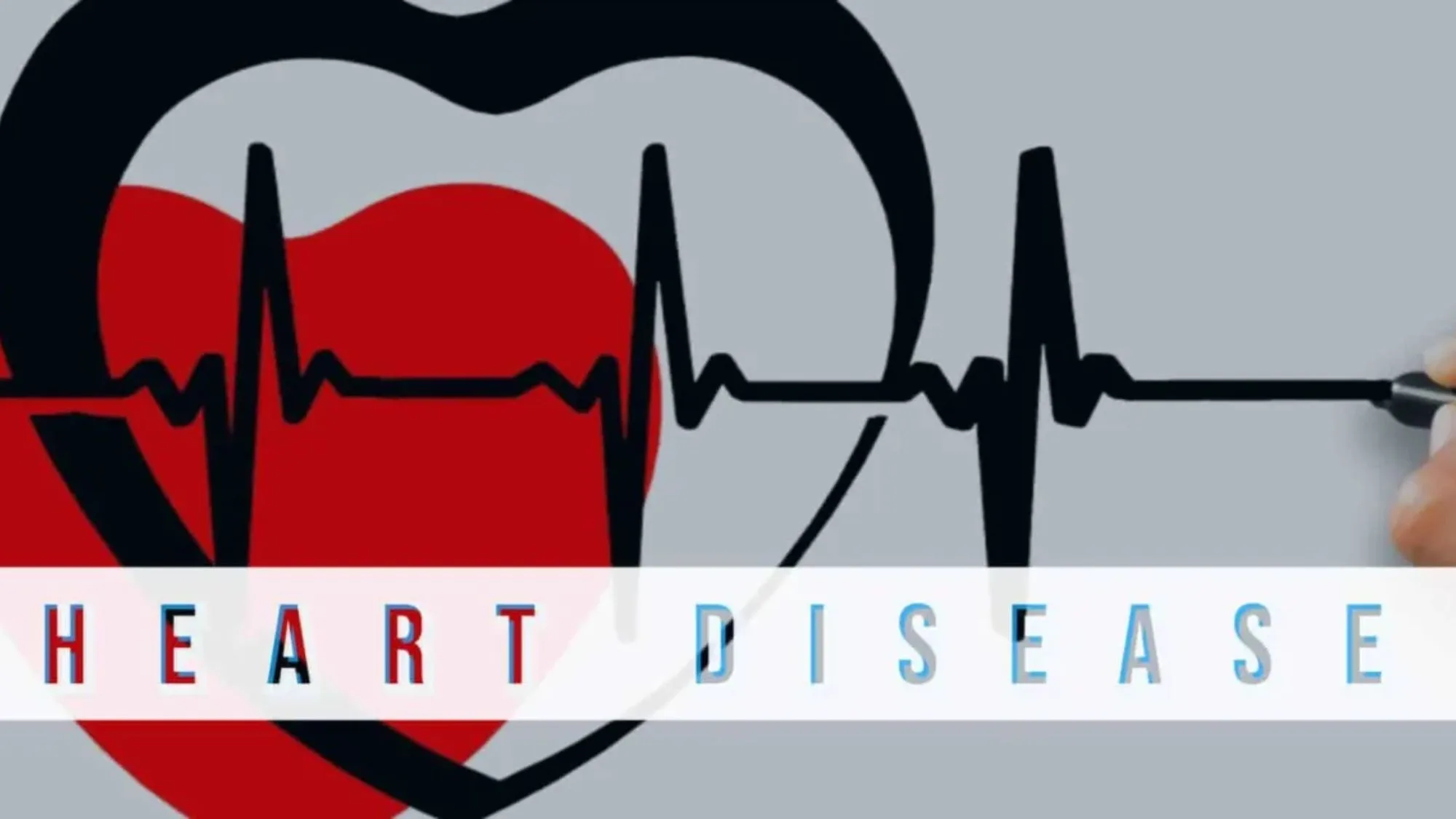
Every 40 seconds, somebody experiences a heart attack. In a year, approximately 790,000 Americans suffer this heart disease due to a lot of factors. According to WHO, cardiovascular diseases are the number one cause of death in the world, since more individuals die yearly from this disease as compared to other cause.
In 2016, around 17.9 million people died from cardiovascular diseases in which 85% are due to stroke and heart attack. That allows a big percentage and very alarming to the world’s population. If you or a loved one has any heart disease, it may be wise to use a heart disease app to track and monitor symptoms that can then be shared with a caregiver. Before we get into how and what, let’s start with what
What is a heart attack?
One in 5 heart attacks is usually silent. This means that the damage has been done without the person knowing or feeling it. A heart attack occurs when there is a blockage and the flow of the oxygenated blood cannot reach the heart muscles. As this happens, there is no oxygen supply in the heart and if this takes a long time, the heart muscle will eventually die.
In most cases, coronary artery disease is usually the main cause of heart attacks or myocardial infarction. This is considered a severe medical emergency and calling 911 is a must. The longer the patient endures the condition, the more damage the heart will have.
Patients who have this disease need to wake up and make some dietary and lifestyle changes because it should not be taken for granted. Those who are at higher risk may need to take some medications prescribed by their specialist. Adhering to medications, lifestyle changes and exercises is not at all easy for a busy individual. Health apps such as CareClinic help in such a way that you are able to make some life-saving changes.
How does the app work?
CareClinic has a medication reminder that sends timely notifications on the exact time and dose you need to take each day. This may be in the form of an alarm or pop-up notification that will surely get your attention when you hold your smartphone. The notification will only go away if you press the confirm button.
The app’s reminder feature is also applicable to your specialist’s appointment, as well as engaging in physical activities to lessen the risk of having a heart attack. Aside from that, CareClinic has a built-in health diary which allows you to track your symptoms, measurements, side effects of medications and more. Laboratory results may also be recorded and have everything printed out on a monthly basis. The health report is the best information you can share with your doctor so that any treatment or therapy can easily be adjusted accordingly.
Daily health goals may also be set and monitored on a daily basis. CareClinic is one of the best partners when it comes to managing heart diseases. The people behind the app are consistently developing the features so rest assured that everything is up to date. Since you will be putting in some health information, privacy issues are not a problem. You can easily set a passcode so that you are the only one who can access the tracker. CareClinic is highly recommended for patients with heart problems so that medication adherence rates will increase and you will stay on top of your health all the time.
Coronary Heart Disease: A Walkthrough
Also known as myocardial infarction (MI), a heart attack requires an immediate medical response. As we all grow old, plaque (fat and cholesterol build-up) piles up inside the arteries. Through time, the buildup of plaque narrows the arteries known as atherosclerosis. If the plaque ruptures inside the artery, a blood clot forms on the surface. If the clot is big enough it can then block the flow of blood through the coronary artery. As this happens, the heart muscle is deprived of nutrients and oxygen. Heart cells die off as they get damaged continuously and result in a heart attack. Serious complications occur afterward such as arrhythmias or cardiogenic shock.
This is the usual cause of a heart attack but sometimes, it could be due to a severe spasm of the coronary artery. In the world, a third of the population who experience heart attacks die from complications. If patients survive for more than 28 days, and their outlook improves, they may be able for many years.
What to watch out for when it comes to heart attacks
Men and women have roughly the same chance in getting a heart attack and here is a list of the usual symptoms:
- Chest pain or discomfort in the center or left side of the chest (Angina Pectoris)
- Tightness in the chest, which can feel like squeezing or heartburn
- Upper body discomfort (pain in one or both arms, the back, shoulders, neck, jaw, or upper part of the stomach)
- Fatigue
- Difficulty of breathing
- Feeling light-headed
- An overwhelming feeling of anxiety
- Cold sweat
- Nausea and vomiting
There are some patients who also experience a stroke as characterized by:
- sudden numbness of the face, leg or arm (one-sided)
- difficulty speaking or confusion
- difficulty with sight
- difficulty walking or loss of balance
- fainting
- severe headache
Since each patient is different, not all experience all the symptoms all at once. Cardiologists need to rule out all signs and symptoms well as these are similar to most cardiovascular diseases. That’s why when using CareClinic, tracking your condition is very important. Your specialist will be able to check how mild or severe your heart condition is.
To diagnose a heart attack, the specialist usually performs an electrocardiogram (ECG) after checking the medical history. Blood tests are also taken to check if there are proteins found in the blood which indicate heart muscle damage. Some patients eventually undergo angioplasty, stent implantation or even a bypass surgery depending on the case.
Who is at risk in developing CVD?
As mentioned, coronary heart disease is the most common cause of heart attacks and these are the risks associated to it:
- Smoking/ tobacco use
- Obesity
- Having high blood pressure (hypertension)
- Having a high level of cholesterol
- Having Diabetes Mellitus
- A diet that is high in saturated fat and salt
- Sedentary lifestyle
- Excessive alcohol consumption
- Having a family history of coronary heart disease
- Age (the risk increases for women after the age of 55 and after the age of 45 in men)
- Preeclampsia, where there is a rise in blood pressure and excess protein in the urine
- Stress
- Having an autoimmune condition
Like other conditions, there are risks that are connected with others and this is called metabolic syndrome. If you happen to have this, you have a higher chance of developing heart disease, as well as Diabetes Mellitus, another complication. If you see or know anyone who is at high risk, refer them to medical professionals for proper heart health education.
Treatment Options for Better Heart Health
There are a lot of interventions, cost-effective ones that are feasible enough to be implemented in low-resource settings. Lifestyle change is one of the top preventive actions in acquiring heart diseases. Smoking cessation, eating a healthy diet and having an active lifestyle should be done. Alcohol consumption must also be avoided as this increases the risk of having a heart attack.
There are also medications that are considered as secondary prevention of cardiovascular disease. The following medications are deemed necessary:
- Angiotensin-converting enzyme (ACE) inhibitors such as benazepril (Lotensin), and captopril (Capoten). These drugs prevent the hormone angiotensin from constricting the blood vessels and the blood can then move easily through the enlarged blood vessels.
- Angiotensin-II receptor blockers (ARBs) include candesartan (Atacand) and losartan (Cozaar)
- Calcium channel blockers such as amlodipine (Norvasc) and diltiazem (Cardizem, Tiazac). The action of these drugs reduces the rate at which calcium triggers heart contractions and then reduce blood pressure.
- Anticoagulants such as warfarin (Coumadin)
- Beta-blockers like acebutolol (Sectral) and atenolol (Tenormin)
- Cholesterol-lowering medications which include statins and nicotinic acids
- Anti-platelet agents such as aspirin, clopidogrel (Plavix), and prasugrel (Effient)
CareClinic – A Heart Disease App To Manage Your Health
Without the heart, blood may not be able to reach the other organs in our body. Therefore, taking good care of it is crucial in surviving. Heart attacks are usually considered major medical emergencies that only a few recover fully. So to prevent myocardial infarction, CareClinic is one of the best heart disease apps for iOS and Android that aids in all aspects.
CareClinic helps you track your health by recording symptoms and medications properly. The app has a reminder function and heart disease journal which makes it easy for your cardiologist to create a treatment plan. Heart-healthy goals may also be placed in the app so that you get to exercise and eat well every single day. CareClinic is unique because it is both patient and doctor-centered. So there is an open communication which facilitates your progress with the treatment course.
Prevention is definitely better than cure so having this app on your phone will save you a lot of money and stress. Start tracking your health every day and achieve your goals on a monthly basis as this app summarizes all data in a journal form. Be sure to print it out and share it with your specialist. CareClinic only wants the best not only for your heart but to the entire body system as well.
If you would like to get started tracking your heart health, click here.


